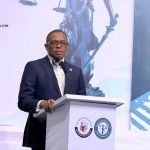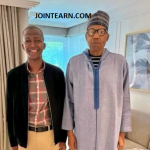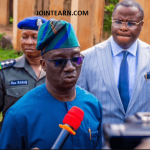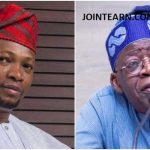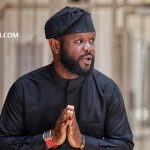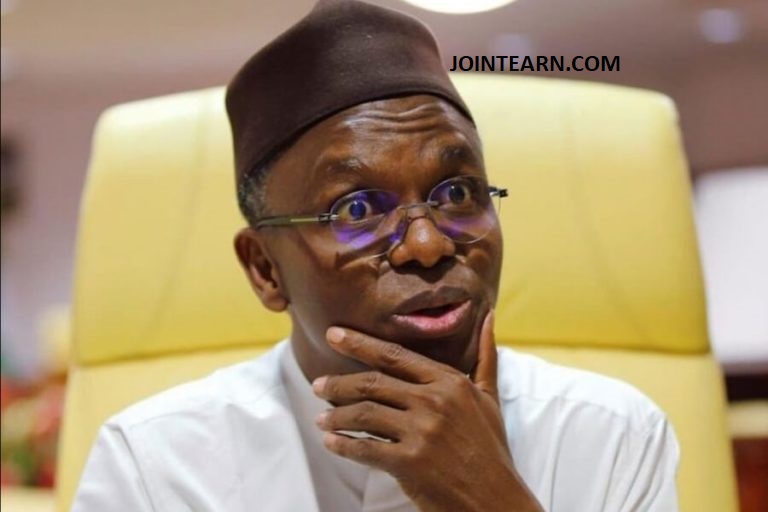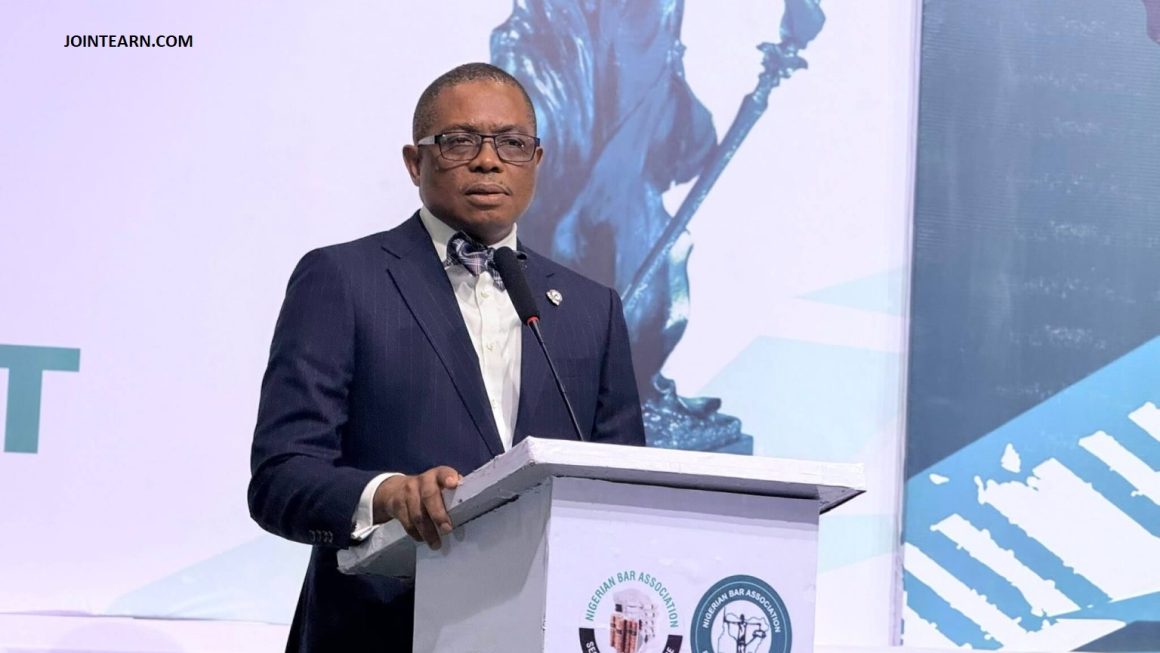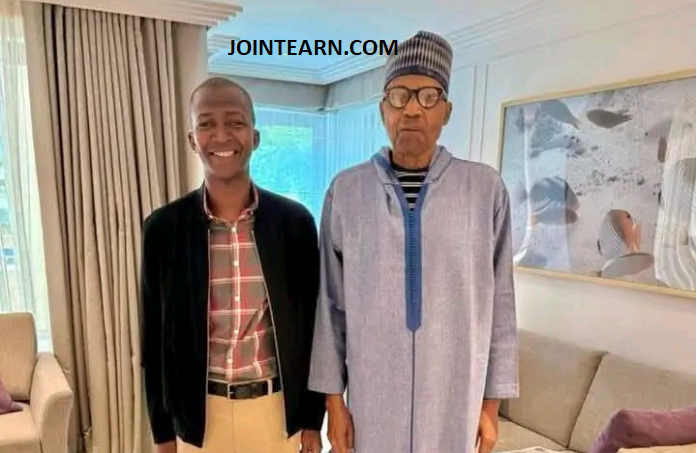In a bold and controversial statement, Kaduna State Governor Nasir El-Rufai has declared that he would not hesitate to take drastic action, even against his own father, if his family member posed a threat to the interests of Nigeria. The outspoken politician made the statement in a public appearance, reaffirming his commitment to protecting the country’s well-being and prioritizing national interests above personal or familial ties.
El-Rufai, known for his unapologetic stance on governance and his strong views on leadership, was responding to a question regarding his stance on national security and integrity. The Governor, who has gained prominence in Nigerian politics for his firm approach to issues such as corruption, governance, and security, emphasized that his loyalty lies with the country and its citizens above all else.
“My loyalty is to Nigeria. If my father or anyone else were to threaten the interests of Nigeria, I would take action, no matter the personal cost. No one is above the nation, not even my family,” El-Rufai asserted, leaving many in the room stunned by the bluntness of his words.
A Controversial Stance
El-Rufai’s comments immediately sparked a wave of debate and discussion across social media, with Nigerians reacting to his unprecedented declaration. While some praised the Governor for his commitment to national duty, others criticized the statement, questioning whether it was a genuine commitment to the country or simply a political stance meant to bolster his image.
The Governor’s words echo a broader conversation around loyalty, duty, and the complex relationship between personal life and public service in Nigeria. El-Rufai has long been a figure who does not shy away from making bold statements, often taking positions that challenge the status quo or provoke public discourse. His latest comments only further fuel his reputation as a fierce advocate for what he believes is in Nigeria’s best interest, regardless of the potential personal sacrifices involved.
While his statement may seem extreme, El-Rufai is no stranger to controversy. Over the years, he has earned a reputation for his hardline policies, particularly in the areas of urban development, security, and economic reforms in Kaduna State. His willingness to make tough decisions, even when they are unpopular, has earned him both admiration and criticism.
The Role of Family and Politics
The relationship between family and politics is often complex, especially in a country like Nigeria, where political connections and family ties play a significant role in shaping power dynamics. El-Rufai’s comments highlight the tension that can arise when personal loyalty conflicts with national duty.
In Nigerian politics, family influence is a powerful force, and many politicians rely on their families to help secure their political positions or advance their agendas. However, El-Rufai’s statement suggests that he is willing to sever personal ties if it means protecting the integrity and stability of the nation.
“I was raised to understand that loyalty to the nation is paramount,” he explained during the interview. “While family is important, the survival and prosperity of Nigeria must always come first. My father, like every other Nigerian, must answer for his actions, especially if they jeopardize the country’s progress.”
This bold statement may be seen as an attempt to assert his independence and reaffirm his commitment to leadership principles that prioritize the public good over personal relationships. In a political climate where accusations of nepotism and favoritism are often leveled against public officials, El-Rufai’s stance could be interpreted as an attempt to distance himself from such criticisms.
A History of Strong-Willed Leadership
Nasir El-Rufai’s leadership style has always been characterized by decisiveness and a willingness to take on controversial issues head-on. Whether it is his approach to security challenges, economic reforms, or urban development, El-Rufai has rarely shied away from making bold and sometimes divisive decisions.
His tenure as the Governor of Kaduna State has been marked by efforts to reform the state’s security sector, improve infrastructure, and address issues of corruption. While his policies have been lauded by some, they have also attracted criticism for their perceived harshness, particularly when it comes to security measures and his handling of local protests.
Despite the mixed reactions to his leadership, El-Rufai has consistently maintained that his actions are always guided by a commitment to the greater good. His latest remarks about his father underscore this unwavering belief in doing what is necessary for the country, even when it comes to making difficult choices.
This attitude also reflects El-Rufai’s broader political philosophy, which emphasizes accountability, transparency, and the rule of law. In his view, no individual—whether family member or political ally—should be allowed to undermine the country’s progress for personal gain or selfish interests.
Public Reactions: Mixed Feelings
The reaction to El-Rufai’s comments has been mixed. Some Nigerians have praised his boldness, viewing his statement as a demonstration of his resolve to protect the nation’s interests at all costs. To them, the Governor’s commitment to placing Nigeria above all else—including his family—shows that he is serious about leadership and willing to take decisive action when necessary.
“I respect El-Rufai’s stance,” one social media user wrote. “Too many politicians put their families before the country. This is what real leadership looks like—putting Nigeria first.”
However, others have expressed concern about the potential implications of his statement. Some have questioned whether El-Rufai’s commitment to national interests could lead to overreach or unnecessary conflicts within the political landscape. They worry that such extreme rhetoric could be used to justify actions that may not always align with democratic values or the principles of fairness and justice.
“What if this leads to overstepping boundaries? Family should be important, too,” another user commented. “I understand the need for national loyalty, but this sounds a bit extreme.”
The Political Implications
El-Rufai’s statement is likely to have significant political implications, both for his future in office and for his relationship with other political figures. By declaring that he would act against even his father if necessary, the Governor is drawing a firm line between his personal life and his duties as a public official. This could help bolster his reputation as a principled leader, particularly in an era where many Nigerians feel that public officials are often too willing to prioritize their personal interests over the country’s needs.
At the same time, El-Rufai’s words could create tension within political circles, particularly if they are seen as a direct challenge to those who may prioritize family loyalty or political alliances over the national interest. His boldness in making this declaration may either earn him allies who share his views or alienate those who view such statements as too extreme for the current political climate.
Conclusion
Nasir El-Rufai’s recent comments have sparked significant debate and reflection on the complex relationship between personal loyalty and national duty. His declaration that he would take action against his father if he posed a threat to Nigeria’s interests is a bold, controversial stance that underscores his commitment to protecting the country, even at personal cost. Whether this will endear him to Nigerians or alienate him from political circles remains to be seen, but one thing is clear—El-Rufai is a politician who is not afraid to speak his mind and make tough decisions in defense of what he believes is right for Nigeria.
